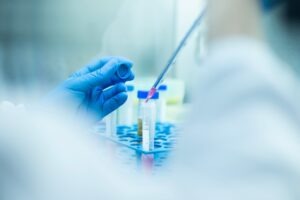British drugmaker GlaxoSmithKline (GSK) has collaborated with the Coalition for Epidemic Preparedness Innovations (CEPI) to develop a vaccine for the novel Coronavirus (2019-nCoV).

Render of 2019 nCoV virion (Credit: CDC/ Alissa Eckert, MS; Dan Higgins, MAM)
Subscribe to our email newsletter
Under the deal, GSK will provide its pandemic vaccine adjuvant technology to enhance the development of an effective vaccine against 2019-nCoV virus.
Coronaviruses are a family of viruses that may cause respiratory illness, including Middle East Respiratory Syndrome (MERS-CoV) and Severe Acute Respiratory Syndrome (SARS-CoV).
The 2019-nCoV virus was determined as the cause of pneumonia cases in Wuhan City, Hubei Province of China on 7 January this year.
CEPI CEO Dr Richard Hatchett said: “Gaining access to GSK’s world-leading adjuvant technology is a huge step forward in developing a vaccine against the novel coronavirus 2019-nCoV.”
CEPI will facilitate engagements between GSK and entities funded by CEPI who are willing to test their vaccine platform with GSK’s adjuvant technology for the development of effective vaccines against 2019-nCoV.
As part of the arrangement, the first agreement has been signed between GSK and the Australia’s University of Queensland in January 2019.
The partnership is working together for the development of a “molecular clamp” vaccine platform to facilitate targeted and rapid vaccine production against multiple viral pathogens.
CEPI has expanded its funding to work on a 2019-nCoV virus vaccine candidate. It will also help provide access to the GSK adjuvant technology, helping in early-stage research.
The latest announcement is also said to complement four earlier CEPI programmes of work relating to 2019-nCoV vaccine development.
The CEPI’s programmes are with CureVac, Inovio, the University of Queensland and Moderna, as well as the US National Institute of Allergy and Infectious Diseases.
GSK Vaccines president Roger Connor said: “At GSK we believe in the value CEPI can bring to responding to outbreaks like 2019-nCOV.
“We are proud to contribute to cutting edge research from scientists at the University of Queensland, and we are open to working with other partners, who have a promising vaccine platform that could be used together with our adjuvant.”
 Advertise With UsAdvertise on our extensive network of industry websites and newsletters.
Advertise With UsAdvertise on our extensive network of industry websites and newsletters.
 Get the PBR newsletterSign up to our free email to get all the latest PBR
news.
Get the PBR newsletterSign up to our free email to get all the latest PBR
news.

